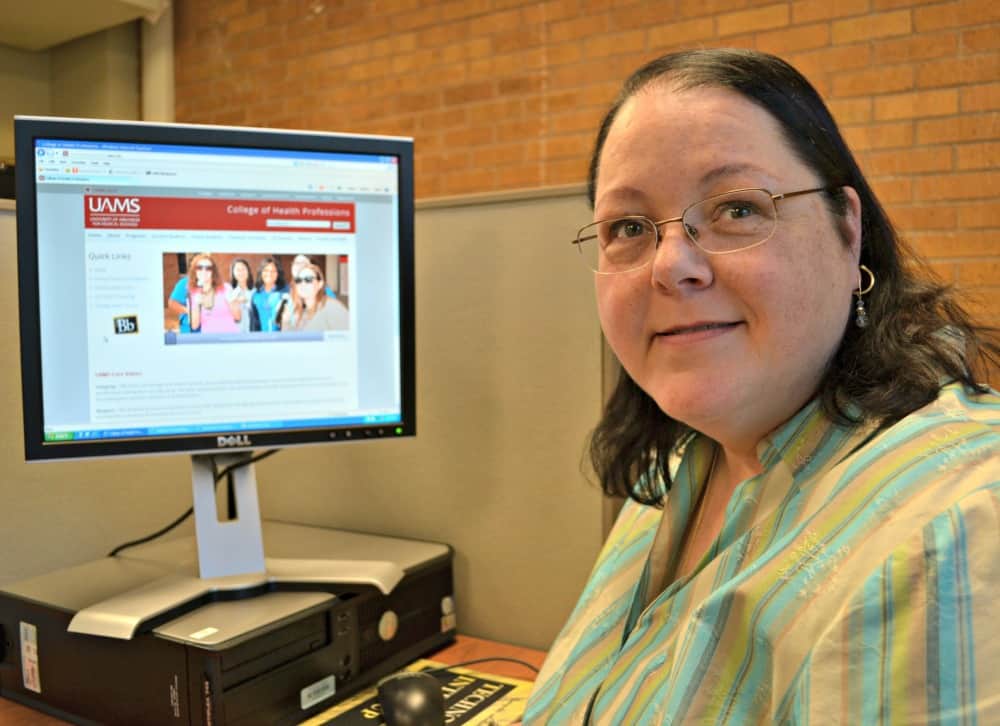Health Information Management Program Adding Bachelor’s Degree
Dec. 4, 2013 | The Department of Health Information Management in the College of Health Professions will begin offering an online bachelor’s degree in Health Information Administration in fall 2014.
The college received approval for the new degree in October from the Coordinating Board of the Arkansas Department of Higher Education. Kathy Trawick, Ed.D., chair of the Department of Health Information Management, said the program gives graduates a higher level of skill than the existing associate’s degree program and positions them for management positions in the field.“For those who enjoy the more technical, hands-on aspect of this profession, the associate’s degree is a more hands-on,” she said. “For others who enjoy working with people and have a grasp on the big-picture or systems approach, the bachelor’s degree is a managerial and enterprise-wide focused degree.”
UAMS has offered the health information management associate’s degree since 1995. While the associate’s degree offers only a part-time track, the bachelor’s degree will offer both full-time and part-time tracks.
Reflecting the high skill level of the new degree program, Trawick said that graduates of the bachelor’s degree program qualify to take the Registered Health Information Administrator (RHIA) national certification.
The bachelor’s degree program emphasizes leadership and management along with knowledge of health information systems, providing the student with the skill set needed to lead in the era of the electronic health record systems. The curriculum also covers the use of information systems for health care planning and provision, resource allocation, and executive decision-making as well as a strong knowledge base in information systems technologies and their application to the areas of health care, data mining techniques, advanced statistical procedures, and management applicable to information systems, human resources and quality improvement in health care.
The U.S. Bureau of Labor Statistics predicts employment of medical records and health information professionals to increase by 21 percent from 2010 to 2020, faster than the average for all occupations.
The demand for health services is expected to increase as the population ages. An aging population will need more medical tests, treatments, and procedures. This will also mean more claims for reimbursement from private and public insurance as well as more efficient methods for maintaining patient records.
Additional records, coupled with widespread use of electronic health records by all types of health care providers, should lead to an increased need for technicians and administrators to organize and manage the associated information in all areas of the health care industry.

